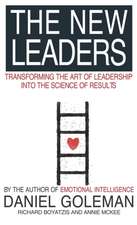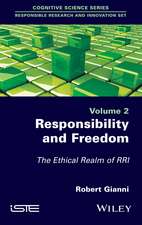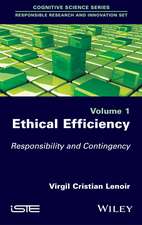Sustainability: The Library of Corporate Responsibilities
Autor David Mollica Editat de Tom Campbellen Limba Engleză Hardback – 28 noi 2009
Preț: 1978.16 lei
Preț vechi: 2808.40 lei
-30% Nou
Puncte Express: 2967
Preț estimativ în valută:
378.51€ • 396.26$ • 313.20£
378.51€ • 396.26$ • 313.20£
Carte tipărită la comandă
Livrare economică 07-21 aprilie
Preluare comenzi: 021 569.72.76
Specificații
ISBN-13: 9780754628170
ISBN-10: 0754628175
Pagini: 630
Dimensiuni: 169 x 244 mm
Greutate: 1.4 kg
Ediția:1
Editura: Taylor & Francis
Colecția Routledge
Seria The Library of Corporate Responsibilities
Locul publicării:Oxford, United Kingdom
ISBN-10: 0754628175
Pagini: 630
Dimensiuni: 169 x 244 mm
Greutate: 1.4 kg
Ediția:1
Editura: Taylor & Francis
Colecția Routledge
Seria The Library of Corporate Responsibilities
Locul publicării:Oxford, United Kingdom
Cuprins
Contents: Introduction: the sustainability phenomenon, Tom Campbell and David Mollica. Part I Sustainabilities: Environmentally benign growth: sustainable development, John S. Dryzek; Sustainability: an interdisciplinary guide, John Pezzey; The very idea of sustainability, Charles V. Blatz; 2 concepts of sustainability, Steve Vanderheiden; The '4 spheres' framework for sustainability, Martin O'Connor; Sustainability: a dissent, Julianne Lutz Newton and Eric T. Freyfogle; Sustainable development: modern elixir or sack dress?, J.G. Frazier; The shaky ground of sustainable development, Don Worster. Part II Science-Based Sustainabilities: Ecologically sustainable development: origins, implementation and challenges, R. Harding; The sustainable biosphere initiative: an ecological research agenda, Jane Lubchenco et al.; The concept of environmental sustainability, Robert Goodland; Ecological sustainability as a conservation concept, J. Baird Callicott and Karen Mumford; Principles of ecosystem sustainability, F. Stuart Chapin III, Margaret S. Thon and Masaki Tateno; Scientific consensus on sustainability: the case of the natural step, Paul Upham; Allocation, distribution, and scale: towards an economics that is efficient, just, and sustainable, Herman E. Daly; Georgescu-Roegen versus Solow/Stiglitz, Herman E. Daly; Toward some operational principles of sustainable development, Herman E. Daly. Part III Economics-Based Sustainabilities: Sustainability: an economist's perspective, Robert M. Solow; The conditions for achieving environmentally sustainable development, Edward B. Barbier and Anil Markandaya; The evolution of preferences: why 'sovereign' preferences may not lead to sustainable policies and what to do about it, Bryan Norton, Robert Costanza and Richard C. Bishop; Sustainable development: a critical review, Sharachchandra M. Lélé; Are we consuming too much?, Kenneth Arrow, et al.; Sustainable development: is it achievable within the existing international political economy context?, Georgia O. Carvalho; Capital theory and the measurement of sustainable development: an indicator of 'weak' sustainability, David W. Pearce and Giles D. Atkinson. Part IV Equities: Intergenerational equity and sustainability, Emilio Padilla; Human development and economic sustainability, Sudhir Anand and Amartya Sen; John Stuart Mill's utilitarianism and the social ethics of sustainable development, Martin O'Connor; Discounting the future, John Broome. Part V Politics and Policy: Sustainable development and global governance, Clive George; New ethics for old? Or, how (not) to think about future generations, Terence Ball; Environmental science, sustainability and politics, Tom O'Riordan; Sustainability and beyond, Dale Jamieson; Name Index.
Notă biografică
Tom Campbell is a Professorial Fellow at Charles Sturt University, Australia and David Mollica is from Australian National University, Australia
Descriere
The essays in this volume reflect a wide variety of viewpoints in the discourse on sustainability: economic, scientific, social and philosophical. They illustrate and illuminate the varied and contested content and utility of this currently popular concept and point to its multiple implications for the development of corporate responsibilities.


















